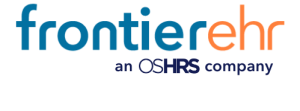What is HRIS in Malaysia? Benefits, Features & Why It Matters for Modern Businesses
In today’s fast-evolving business environment, Human Resources (HR) has moved far beyond simple personnel management. With digital transformation at the forefront, Human Resource Information Systems (HRIS) are now essential for companies looking to optimize workforce management, ensure compliance, and enhance employee engagement—especially in dynamic markets like Malaysia.
In this article, we’ll explore what HRIS means, how it differs from HRMS, the key features, benefits, challenges, and future trends for Malaysian businesses. If you’re looking for a system to support your HR functions, this guide will help you understand your options and what to consider.
What is HRIS?
An HRIS (Human Resource Information System) is a software platform designed to manage and automate core HR functions such as payroll, attendance, recruitment, leave tracking, and employee data. It acts as a central database where all HR-related data is stored, managed, and accessed securely.
In Malaysia, HRIS systems are especially valuable in helping companies stay compliant with local employment laws, manage multilingual and multicultural teams, and adapt quickly to the growing need for digital HR practices.
One of the leading providers of HRIS in Malaysia is Frontier e-HR, a trusted HRMS solution that supports businesses of all sizes in streamlining their HR operations while ensuring statutory compliance.
HRIS vs HRMS: What’s the Difference?
You may have also heard of HRMS (Human Resource Management System). While both terms are often used interchangeably, there’s a subtle distinction:
| HRIS | HRMS |
|---|---|
| Focuses mainly on core HR data management (employee records, leave, attendance) | Includes HRIS functions + broader HR functions like performance management, recruitment, training |
| Ideal for administrative tasks | Ideal for strategic HR planning and talent management |
| Often more affordable and scalable for SMEs | Often targeted at larger enterprises |
Who Uses HRIS?
An HRIS system is not just for HR departments. In a well-integrated system:
- HR professionals use it to automate tasks and track employee data.
- Managers use it for approving leave, evaluating teams, and performance reviews.
- Employees use it for self-service tasks like applying for leave or checking payslips.
- Executives use HRIS analytics to inform business decisions.
Benefits of HRIS for Malaysian Businesses
Implementing an HRIS brings tangible and strategic benefits to organizations across Malaysia, whether you’re a growing SME or a large enterprise:
Improved Regulatory Compliance
Malaysia has strict labor laws and statutory contribution requirements (EPF, SOCSO, EIS, PCB). A good HRIS ensures that your HR and payroll processes are always compliant with the latest regulations, minimizing legal and financial risks.
Operational Efficiency & Cost Savings
Automating time-consuming tasks—like payroll calculations, leave approvals, and employee record management—saves HR teams significant time and reduces errors. This leads to better productivity and cost efficiency.
Enhanced Employee Experience
Employees gain access to self-service features such as e-leave, payslip downloads, and personal information updates. This fosters transparency, reduces HR workload, and improves overall employee satisfaction.
Centralized and Secure Data
All HR data is stored in a secure, centralized system—reducing data fragmentation and making it easier to manage, audit, and analyze employee information.
Scalability for Business Growth
As your business expands, your HRIS can grow with you—accommodating new employees, locations, departments, and changing HR policies with ease.
Real-Time Insights and Analytics
With built-in dashboards and reporting tools, HRIS provides valuable data to drive decisions around hiring, retention, absenteeism, and performance.
Challenges in Implementing HRIS
While the benefits are clear, organizations may face several challenges when adopting HRIS, particularly during the initial stages:
Change Management Resistance
Employees and managers may resist transitioning from manual or legacy systems. This can slow down adoption and limit system effectiveness if not properly managed.
Data Migration & Cleanup
Transferring existing HR records into a new system often reveals inconsistent or outdated data, requiring time-consuming validation and cleanup.
Training Requirements
Users need to be trained on how to use the system effectively. Without proper onboarding, the system’s full potential may not be realized.
Cost of Implementation
While HRIS is a long-term investment, the upfront cost—especially for customization and setup—may be a concern for smaller businesses.
Vendor Support & Reliability
Choosing a vendor that offers local support, understands Malaysian compliance, and provides timely updates is essential for long-term success.
Key Considerations When Choosing an HRIS in Malaysia
Before selecting an HRIS, it’s crucial to evaluate your needs and the system’s ability to meet them. Here are some key factors to consider:
Local Compliance
Does the system support Malaysia’s statutory payroll and labor laws? Look for built-in support for EPF, SOCSO, EIS, PCB, and relevant leave policies.
Cloud-Based and Mobile-Ready
Is the solution accessible remotely, especially for a hybrid or remote workforce?
Modular and Customizable
Can the system scale with your business and adapt to your workflow? Flexibility in modules (e.g., leave, payroll, claims) is critical.
Integration Capabilities
Will it integrate with your existing accounting or ERP systems?
User Experience
Is the interface intuitive for HR professionals, managers, and employees alike?
Vendor Reputation
Does the provider offer local support, training, and frequent updates? A vendor with deep experience in Malaysia’s HR landscape is a huge plus.
The Future of HRIS in Malaysia
As businesses across Malaysia continue to digitize, the future of HRIS lies in smart, integrated, and employee-centric platforms. Expect to see more AI-driven insights, automated talent management, and employee engagement features—all accessible from mobile devices. Vendors like Frontier e-HR are leading this change by integrating performance analytics, onboarding automation, and learning tools into their platforms.
Ready to Transform Your HR?
If you’re still relying on spreadsheets or outdated systems, now is the time to switch. Frontier e-HR offers an end-to-end HRMS tailored for Malaysian companies—helping you simplify operations, enhance compliance, and boost employee engagement.
Contact Frontier e-HR for a free consultation or demo today.

